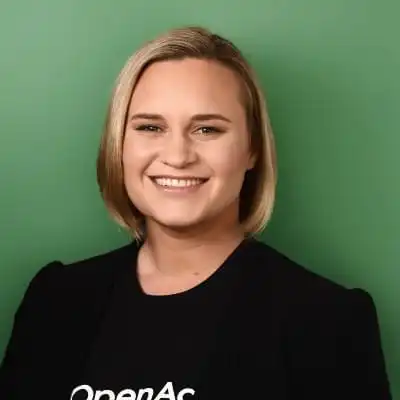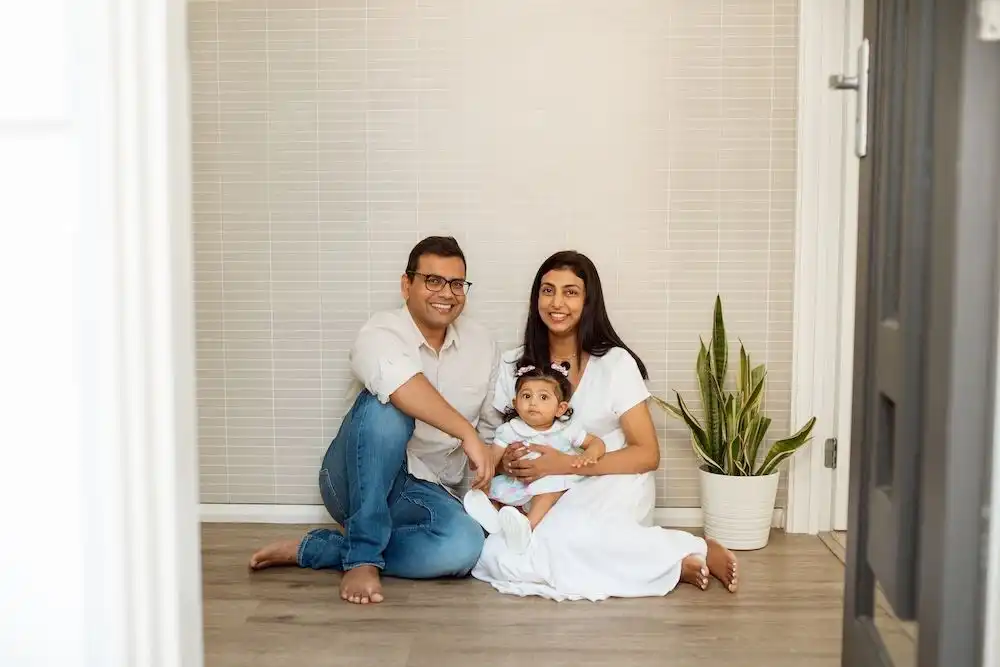The ups and downs of founding a start-up
For years, Zoe Pointon helped big companies with their strategy and operational problems, but she says founding a start-up has been the most challenging and hardest job she’s ever had.
“Not many start-up blogs talk about the downsides,” she says. “Mostly people glorify what it is like to work in ‘tech’ or start-up. But the reality is for a founder, that there are many challenges and a lot of people relying on you. Probably the toughest thing is managing your own mindset, because there will absolutely be downs that feel very low. That can be when you have made a mistake, when your company hasn't lived up to what you are trying to do, when people don't believe in you or see your vision, when it looks like you won't get funded, when you have to make difficult calls or tough people decisions. There are so many times when things are tough. What is really important as a founder is to have ways to deal with those low points, because they will definitely happen.”
Having worked for prestigious global management-consulting firm McKinsey & Company and then in her own business, Pointon went from doing business around the boardroom table to working around the kitchen table when she started OpenAgent with her friend and former McKinsey colleague Marta Higuera. And it wasn’t even a proper kitchen table. “At the time, I didn't even have a real table in my house so we were working on outdoor furniture,” she says.
It all started with an observation – that there were lots of really mixed experiences going on in the selling and buying of property. “It’s a big transaction that normally happens at a significant life moment – for example, when you are having your first or second child or your children have moved out of home –and it is therefore stressful,” explains Pointon.
“It’s well known that real estate agents are not the most trusted of professions, and I started asking questions: Why were agents not trusted? Why were people not having a good experience selling? And why do agents charge consumers the way they do. The deeper I got into the problem, the more I felt that it was, firstly, important and worth solving and, secondly, solvable with the right aligned-incentives between all parties.”
The solution to the problem became clearer: bring more transparency into the real estate market through a rating system, similar to those shaking up other industries.
As the OpenAgent idea took hold, Pointon reached out to Higuera, who was sailing around the Mediterranean for six months with her husband-to-be before their wedding. They started emailing back and forth about it, and soon ideas turned into action!
“We coded our first website, wrote all of the copy, figured out how to advertise on Adwords and found our first 20 or so customers, who we called ourselves,” recalls Pointon.
“We were keeping track of these customers on a whiteboard, with post-it notes that represented each customer – our very first CRM (customer relations management system). We used this to figure out the steps in the process, something that we've been innovating on ever since. We weren't yet sure exactly what people wanted, but we knew from those early days that there was a real consumer need for more information, more transparency, and help in finding an agent they could trust with their biggest asset.” It was by no means easy.
“At first we weren't being paid at all and this phase lasted for about one year,” says Pointon. “That was pretty tough, especially because we were funding all the early expenses out of our own pockets. We were also asking ourselves really big questions at the time: Do consumers want this? Do agents want to work with us? Is there a viable business model here? And what is the role of tech in this business?”
As the idea grew, they brought on board a Russian developer, a Philippino analyst and a Kiwi ex- real estate agent. But they had to go back to work part-time to pay their salaries.
Pointon says getting everything up and running took so much longer than one could ever imagine. “I truly understand the lean principles, having lived through them. You absolutely can't possibly know how things are going to pan out, so the only thing you can do is test-learn-iterate, and do this with the minimum amount of time or money spent on each activity. The key is really in figuring out how to learn as much as possible, as fast as possible, burning as little resource along the way.”
What really helped her along the way was having a fully invested, trusted co-founder relationship and surrounding herself with supportive investors, partners and team members.
“I also got some really great advice from one of my mentors and it was basically around understanding your own psychology,” she says. “It was about knowing where you get energy and inspiration from – for me, doing physical exercise and working with inspiring people on big ideas – and also just simply ‘getting the sh*t done’.
“Probably the best thing to say to yourself in a down period is that progress beats fear every time. So no matter how you are feeling, just go and get something positive done, work related or not. It is amazing how much ticking a couple of things off your list changes how you are feeling about things if you are an action-oriented person. You suddenly feel like you are moving forward.”
The business certainly has moved forward. OpenAgent employs 55 people these days and is gaining traction in the market. Last year, it raised $6 million from South Africa-based financial services firm Hollard Investments, which has also invested insurance group Greenstone in Australia. This follows the $2 million in seed funding OpenAgent received from a range of angel investors, including Pete Flint, the founder of US real estate giant Trulia, which was recently picked up by Zillow for $US3.5 billion.
It was also named as a Deloitte Fast 50 Rising Star in both the 2014 and 2015 awards. And Pointon received the 2015 Telstra New South Wales Business Women’s Awards in the start-up category





